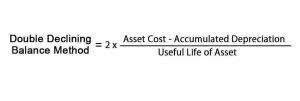
First launched in 1998 by the Legal Electronic Data Exchange Standards Committee, LEDES billing created a standardized format specifically for electronic legal invoicing. LEDES was released to the legal world in 1998 and facilitated the exchange of legal billing information between law firms and corporate clients. While learning a new billing system can seem overwhelming at first, keep in mind that UTBMS and LEDES were designed to make the billing process simpler for both law firms and their clients.
Subscription-based billing options
By outlawing rental bidding, we will level the playing field for renters and crack down on the minority of unscrupulous landlords who make the most of the housing crisis by forcing tenants to bid for their properties. Rental discrimination against families with children or people who receive https://www.bookstime.com/ benefits have no place in a fair and modern housing market. Everyone in the private rented sector is entitled to a safe and decent home and prospective tenants should be considered on an individual basis. We remain committed to abolition of section 21 in the social rented sector too.

Victoria Business
As trust builds and disputes lessen, invoices are paid more quickly and law firms have a steady cash flow. If the invoice is approved upon receipt, it can typically be processed and paid quickly, since there is no need for further communication with the law firm. This happens more often with e-billing software since clients understand the charges and feel less of a need to question the bill. When it comes to making the best business decisions for your law firm, data is key. Electronic billing software for law firms captures billing data, tracks important legal analytics, and creates legal billing reports so you can accurately understand your firm’s billing-related key performance indicators.
What is Legal E-billing? Compliance, Benefits and Future of Legal E-Billing
Created for small law firms, the solution covers lead management, case management, billing and invoicing, and reporting. Some of the top programs used by law firms are Clio, MyCase, PracticePanther, Rocket Matter, and AbacusLaw. These legal-specific billing software solutions are designed with the unique needs of law firms in mind, offering trust accounting features, contingency fee billing, and much more. It contains not only the invoice header, matter information, and bill totals but a detailed breakdown of timelines, timekeepers, and expenses coded against tasks, activities, and expenses. A legal-specific e-Billing solution is essential to capture this level of detail; standard accounts payable (AP) systems cannot capture this. The benefits of e-Billing are directly related to reducing costs, so it’s easy to prove return on investment (ROI) quickly.

How Does Legal E-Billing Aid In Client-Lawyer Communication?
This technology improves accuracy and saves significant time, which you can then redirect toward billable work. How well do you and your law firm staff understand your billing workflow and process? A good place to start your billing policy is by articulating What is Legal E-Billing your overall billing process—from start to finish. When moving from manual workflows to electronic billing, you will eliminate certain manual steps. That’s why creating a standard process now can ensure consistency and avoid confusion moving forward.
- It’s helpful to ask lawyers to use a specific system, such as your legal practice management software, to conduct reviews electronically (you can easily keep track of this in Clio).
- Whether firms use electronic billing to create invoices through LEDES standards or another coding system, electronic billing standards offer an opportunity for clearer, more consistent bills.
- Legal e-billing software automates processes to save time and reduce errors to streamline a firm’s day-to-day operations.
- Just as you would create a policy for any type of law firm billing, you need to establish a policy for electronic legal billing.
- The standard aimed to improve efficiency and accuracy in billing processes, allowing for automated invoice validation and seamless integration with client systems.
Benefits of electronic billing software for law firms
- The legal framework governing e-billing primarily revolves around compliance with data protection laws, electronic transaction regulations, and client-specific billing guidelines.
- They should provide the right amount of context and information to leave the client satisfied that they’ve received the value they’re paying for.
- Law firms can leverage electronic legal billing software to offer clients a better client experience through increased transparency and clarity in their bill structure—which leads to increased trust.
- Access expert advice and proven strategies for effective financial management.
- Have a standard but personalized reminder email or letter you can easily send to clients.
- These principles help law firms correctly submit invoices, track expenses, and create detailed reports in a consistent manner.
- By informing your clients of your policy from the start, they will know what to expect, how they can pay, and when they’ll need to pay.
PracticePanther Legal Software
- LEDES was released to the legal world in 1998 and facilitated the exchange of legal billing information between law firms and corporate clients.
- The Renters’ Rights Bill will ensure landlords do not unreasonably withhold consent when a tenant requests to have a pet in their home, with the tenant able to challenge unfair decisions.
- It streamlines the traditional paper-based billing process by leveraging technology to manage and track legal expenses more efficiently.
- Make sure you feel comfortable with the way in which any software firm suggests that you handle your data and that they’ve been able to reassure you about the steps they’ve taken to keep it safe.
- These portals offer a secure way for clients to view their invoices, payment history, and outstanding balances.
- And you’ll get access to conflicts management, trust accounting and ABA task codes.
- Set and manage client trusts and Interest on Lawyer Trust Accounts (IOLTA), while staying compliant with the fund level and other regulations.
- Electronic billing software for law firms optimizes workflows by automating many of the traditionally manual tasks related to billing.
- The spend management side simplifies managing accruals and can use the data to generate estimates vs. actuals reports.
- Billable hours in a law firm are hours logged by attorneys and other legal professionals for work directly related to client matters.
- As our legal billing template shows, the framework can be straightforward and set up as an itemized list.
Have a public billing policy for clients


Recent Comments